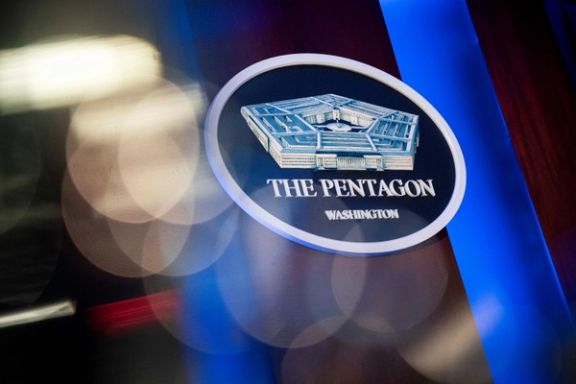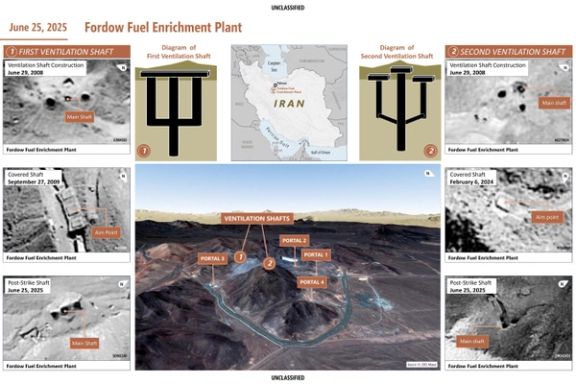US says Iran’s nuclear program set back by up to two years after strikes

Iran’s nuclear program has been set back by as much as two years following US airstrikes on key sites last month, the Pentagon said on Wednesday.

Iran’s nuclear program has been set back by as much as two years following US airstrikes on key sites last month, the Pentagon said on Wednesday.
“We have degraded their program by one to two years, at least,” Pentagon spokesman Sean Parnell told reporters. “All of the intelligence that we've seen leads us to believe those facilities, especially, have been completely obliterated.”
The June 22 strikes targeted Iran’s nuclear sites at Fordow, Natanz, and Isfahan using bunker-buster bombs and Tomahawk cruise missiles, a mission US officials have described as a success.
Iranian Foreign Minister Abbas Araghchi confirmed that the Fordow facility had sustained major damage. “What we know so far is that the facilities have been seriously and heavily damaged,” he told CBS News, adding that the Atomic Energy Organization of Iran is still evaluating the site.
Despite the damage, Araghchi said Iran would not abandon its nuclear efforts. “Our peaceful nuclear program has turned into a matter of national pride and glory,” he said. “People will not easily back down from enrichment.”

IAEA says enrichment could resume within months
The head of the International Atomic Energy Agency, Rafael Grossi, said on Sunday that Iran retains enough technical capacity to resume uranium enrichment in a matter of months. “They could have, in a matter of months—or even less—a few cascades of centrifuges spinning and producing enriched uranium,” he told CBS.
“Frankly speaking, one cannot claim that everything has disappeared,” Grossi said. “There is still something there.”
Iran’s Foreign Minister Abbas Araghchi echoed that view, saying the program could recover if the government chooses to act. “If there is this will on our part, and the will exists in order to once again make progress in this industry, we will be able to expeditiously repair the damages and make up for the lost time,” he said.
Tehran suspends cooperation with UN watchdog after strikes
Tehran has since enacted legislation suspending cooperation with the IAEA under its safeguards agreement, unless its demands—including guarantees for its nuclear facilities and scientists—are met. The IAEA said on Wednesday it had not yet received formal clarification and that its inspectors remained in Iran.
Meanwhile, Iranian officials and state media have escalated criticism of the agency. A senior judiciary official said IAEA Director General Rafael Grossi could face trial in absentia for “deceptive actions,” while a hardline newspaper called for his arrest and execution. France, Germany, and the UK condemned the threats in a joint statement and reaffirmed support for the agency.
Despite the damage to key facilities, Iran has not ruled out further enrichment. “People will not easily back down,” Araghchi said. President Donald Trump warned earlier that any resumption of enrichment would be met “without question” by further military strikes.